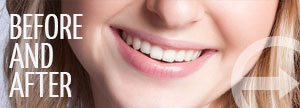


 (937) 235-2400
(937) 235-2400

 You’ve likely heard the old adage, “You are what you eat.” This is true in reference to whole body health and oral health. In fact, the foods and beverage you consume on a daily basis have both immediate and long term effects on your oral health. During a six month preventive dental exam, talk to your dentist about foods that could help you maintain a healthy smile. In this post, we’ll discuss some of the basics, but every patient is different. Discuss dietary changes with your dentist and/or physician to ensure your smile and whole body stay healthy.
You’ve likely heard the old adage, “You are what you eat.” This is true in reference to whole body health and oral health. In fact, the foods and beverage you consume on a daily basis have both immediate and long term effects on your oral health. During a six month preventive dental exam, talk to your dentist about foods that could help you maintain a healthy smile. In this post, we’ll discuss some of the basics, but every patient is different. Discuss dietary changes with your dentist and/or physician to ensure your smile and whole body stay healthy.
As you consume foods, they make direct contact with teeth, gums, and oral structures. Inside your mouth, a constant back and forth occurs between oral bacteria and neutralizing saliva. The bacteria in the mouth help us to break down foods into nutrients, but these living organisms produce a waste product called plaque that is sticky and acidic. Saliva works to neutralize plaque and prevent dental damage. When we consume a variety of foods and beverages, saliva should be able to neutralize the plaque and prevent tooth decay and soft tissue damage. Foods that are high in sugar or highly acidic overpower the neutralizing saliva, allowing plaque to stick to teeth weakening enamel and irritating soft tissue. You can undo some of the possible harm of consuming these more acidic foods by brushing between meals and drinking plenty of water to continually rinse away food and plaque.
The long term effects of your diet on oral health can be even more detrimental. When the body doesn’t receive the nutrients it needs to support healthy function, it begins to redirect nutrients to the most vital areas, and unfortunately, that doesn’t usually include the mouth. Lack of proper nutrition also overtaxes the immune system, leaving patients more susceptible to oral health concerns like gum disease, tooth abscess, and oral sores. Malnourished or improperly nourished patients can present with numerous symptoms that affect the mouth, including decay, gum disease, and even tooth loss.
Consider eating things like raw vegetables, nuts, and cheeses and other dairy products, especially if you’re snacking between meals. These types of foods are less likely to stick between teeth. If you’re going to consume sticky, acidic, or sugary foods, it’s recommended that you do so as part of a meal rather than as a snack. Drink water with meals to help remove stuck on foods and produce saliva to neutralize acidity. If you don’t have time to brush your teeth after you eat, chew sugar free gum. This will remove food stuck to teeth and reduce the risk for plaque buildup.
Huber Heights dentist, James A. Striebel, DDS, DABDSM, has years of experience working with patients to create health care plans that promote optimal oral and whole body health. During your regular dental office visits, Dr. Striebel would be happy to review some of those foods that can help to keep your smile whole and healthy for life. If you want to find out more about any of our preventive, restorative, or cosmetic dentistry services, call to schedule an appointment with us today.
No comments yet.
RSS feed for comments on this post.
Sorry, the comment form is closed at this time.